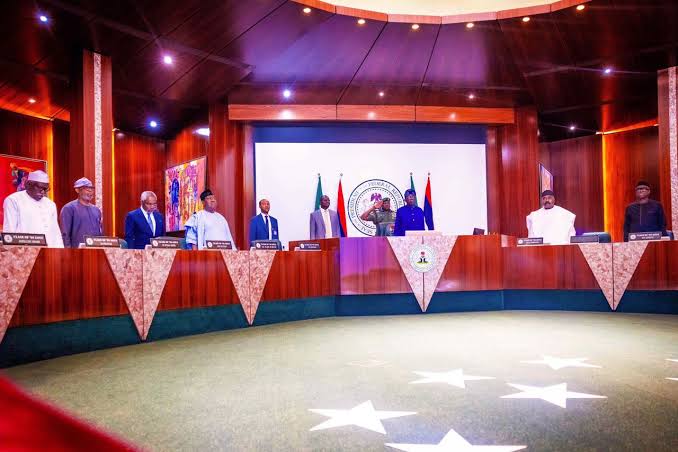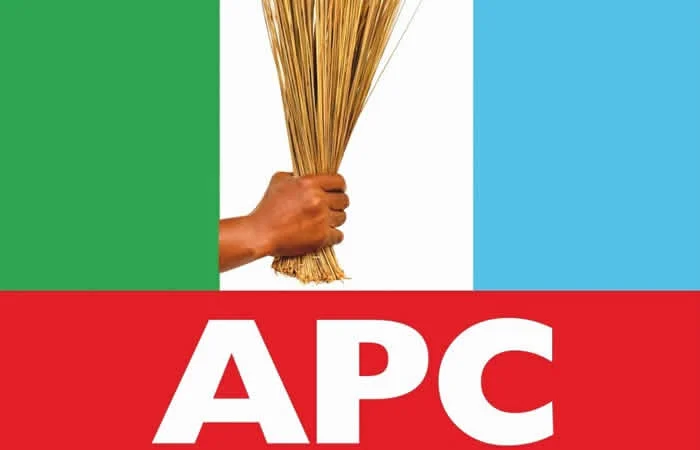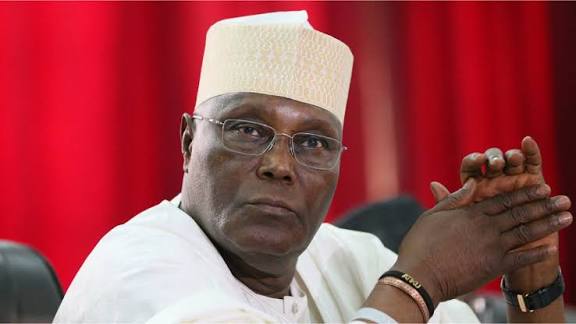
Why we are taking more loans ispite of increased revenue generation – Federal Govt
Why we are taking more loans ispite of increased revenue generation – Federal Govt
The Federal Government has reiterated its rationale for pursuing further foreign loans, asserting that they are a key element of the 2024 Appropriation Act.
Officials have highlighted that these loans are crucial for bridging the N9.7 trillion budget deficit, while also helping to advance infrastructure projects and support the country’s most disadvantaged citizens.
During an interactive session on the 2025-2027 Medium Term Expenditure Framework (MTEF) and Fiscal Strategy Paper (FSP), held at the National Assembly in Abuja, Minister of Finance and Coordinating Minister of the Economy, Wale Edun, Budget and Economic Planning Minister, Atiku Bagudu, and Federal Inland Revenue Service (FIRS) Chairman, Zacch Adedeji, outlined the rationale behind the borrowing strategy.
The session was organized by the National Assembly Joint Committees on Finance, National Planning, and Economic Affairs.
The discussion followed President Bola Tinubu’s request to the National Assembly for approval to borrow $2.209 billion, which was raised in two separate letters.
The officials’ explanation came in response to a query from Senator Adamu Aliero, who questioned why the government was pursuing additional loans when its revenue-generating agencies had exceeded their targets for the year.
In his response, Adedeji clarified that meeting revenue targets does not eliminate the need for borrowing. “The fact that we meet revenue targets does not mean we should not borrow,” he explained. “Our budget includes both a borrowing component and an internally generated revenue component. It’s a complete package, and the borrowing target is part of the budget approved by the National Assembly.”
Edun and Bagudu further supported the argument, explaining that despite some agencies exceeding their revenue targets, borrowing remains essential for the proper financing of the budget and the achievement of its broader economic objectives.
Bagudu said: “Despite surpassing revenue targets by some of the revenue generating agencies, the government still needs to borrow for proper funding of the budget, particularly in the area of deficit and provision for the poorest and most vulnerable.
“We have a long-term development agenda 2050 aiming at GDP (Gross Domestic Product) per capital of $33,000.”
Edun expressed confidence in Nigeria’s economic prospects, pointing to a carefully planned budget for 2025 as a key driver. He noted that under President Tinubu’s leadership, the country has undergone significant changes.
The minister underscored the critical role of market-driven pricing for petroleum products and foreign exchange, stating that these reforms have sent positive signals to investors.
“Just today (yesterday), the National Bureau of Statistics (NBS) announced that GDP growth in the third quarter was 3.46 percent, let’s say, for the sake of round numbers, 3.5 percent.
“That means that the GDP per capital is increasing. The economy is moving in the right direction.
“Inflation is too high and that is why interventions are being made particularly for the most vulnerable.
“Let me just summarise the change by saying that in Nigeria, for the first time in four decades, we have market prices of petroleum products being determined by market forces because of the local refinery which is not only producing Premium Motor Spirit (petrol), but also diesel and Jet A1 (Aviation fuel). It is also producing raw materials for industries and agriculture.
“In addition, we have market pricing of foreign exchange.
“For the first time in 40 years, no Nigerian can wake up and think that his way to fortune and the quickest path he can take to getting rich is by getting an allocation of foreign exchange from the Central Bank of Nigeria (CBN).
“Likewise, no Nigerian can wake up and feel that his quickest path to riches is to look for a subsidised allocation from the Nigerian National Petroleum Corporation Limited (NNPCL) and make money.”
News
BREAKING ; Atiku’s Son dumps PDP defects to APC, vows to work for President Tinubu’s reelection

BREAKING ; Atiku’s Son dumps PDP defects to APC, vows to work for President Tinubu’s reelection
The Son of Abubakar Atiku Abubakar, former Vice President and 2023 Peoples Democratic Party (PDP) presidential candidate, Alhaji Atiku Abubakar, dumped the PDP and pledged to work for President Bola Ahmed Tinubu’s re-election in 2027.
Abubakar, popularly known as Abba, formally announced his defection to the APC at the National Assembly, where he was received by the Deputy President of the Senate, Senator Barau Jibrin, with APC leaders from the North-East.
Party leaders described the move as a significant boost to the APC’s consolidation efforts ahead of the next general election, given Abba’s political network and grassroots organisation.
Announcing his resignation from the PDP, Abba said the decision was informed by his conviction in the leadership style of Senator Barau and the policies of the Tinubu administration.
News
Eight persons killed, others injured in another fatal road accident

Eight persons killed, others injured in another fatal road accident
Eight persons died while three others were injured in a road traffic crash along the Potiskum–Dogon Kuka carriageway in Yobe.
The Yobe Sector Commander of the Federal Road Safety Corps (FRSC), Mr Andrew Longkam, confirmed the incident on Thursday.
He said the crash occurred around Gaggaba on the Potiskum–Dogon Kuka axis at about 12:40 hours.
“Preliminary reports from Dogon Kuka Unit Command show the incident was promptly reported to the corps,” Longkam said.
FRSC operatives arrived within five minutes, enabling swift rescue, evacuation of victims, traffic control, road clearance and prevention of secondary crashes.
The crash involved a white Howo trailer, registration DAL 963YY, and a white Mitsubishi Canter, registration NNR 437XA.
“Twelve adult males were involved, with eight fatalities and four rescued, including three injured and one unhurt,” he said.
The injured and deceased were taken to Government General Hospital, Dogon Kuka, where the injured received prompt medical attention.
Longkam said the FRSC tow truck cleared the obstruction, restored traffic flow and notified the Police Motor Traffic Division in Dogon Kuka.
“Preliminary findings indicate the Mitsubishi Canter, suspected to excessive speeding, committed a route violation and crashed into the trailer,” he said.
He said excessive speed and route violation were suspected causes, adding that investigations were ongoing to determine the exact circumstances.
The sector commander urged motorists to avoid speeding, route violations and unsafe practices, assuring continued enforcement, emergency response and public education across the state. (NAN)
News
Atiku finally breaks silence after his Son defects to APC

Atiku finally breaks silence after his Son defects to APC
Former Vice President and Peoples Democratic Party (PDP) presidential candidate, Atiku Abubakar, has addressed his son Abba Abubakar’s decision to join the All Progressives Congress (APC), describing it as a personal choice.
In a statement posted on his X handle, Atiku said, “The decision of my son, Abba Abubakar, to join the APC is entirely personal. In a democracy, such choices are neither unusual nor alarming, even when family and politics intersect.”
He added, “As a democrat, I do not coerce my own children in matters of conscience, and I certainly will not coerce Nigerians.”
The former vice president also highlighted his concerns about the ruling party, saying, “What truly concerns me is the poor governance of the APC and the severe economic and social hardships it has imposed on our people.”
“ I remain resolute in working with like-minded patriots to restore good governance and offer Nigerians a credible alternative that brings relief, hope, and progress.”
-
6 years ago
Our situation in Kano terrible – Gov Ganduje cries out
-

 News11 months ago
News11 months agoFG pledges commitment to enhance Police officers Welfare, implement Tinubu’s 8-point agenda for NPF
-

 News11 months ago
News11 months agoBREAKING; NSCDC gets approval to commence 2025 recruitment exercise
-

 News9 months ago
News9 months agoAlleged cocaine deal: Court issues orders in suspended DCP Abba Kyari’s case
-

 News12 months ago
News12 months agoDPO under investigation for allegedly taking teenage girl to his home while in police custody
-

 News12 months ago
News12 months agoJUST IN; Commissioner of Police bows out of Service
-

 News9 months ago
News9 months agoJUST IN; Police Inspector dies watching Arsenal match
-

 News12 months ago
News12 months agoBREAKING; NLC declare nationwide protest


